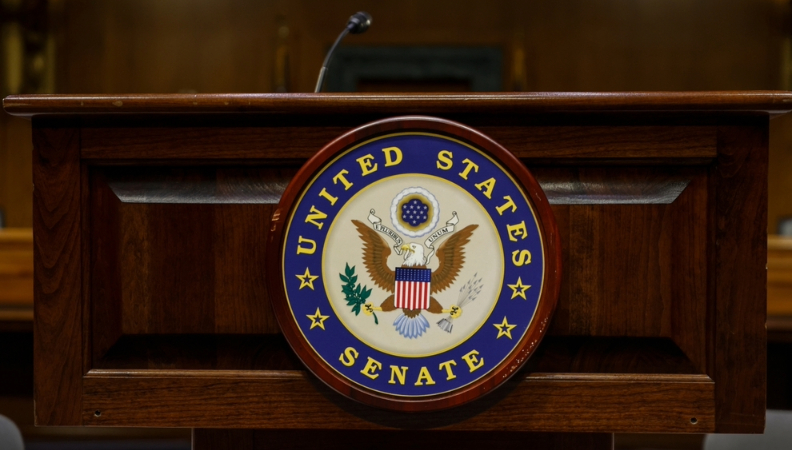
The Senate Committee on Appropriations is looking to stabilize funding for key White House offices while boosting some funding for the federal courts system to tackle cybersecurity needs in fiscal year (FY) 2026.
In the Senate’s Financial Services and General Government (FSGG) appropriations draft, the Office of Management and Budget (OMB) will retain the same level of funding it had in FY 2025, at $129 million. The Office of the National Cyber Director (ONCD) is set to receive $20 million under the proposal – aligning with the number requested by the White House – which is a $1.7 million shortfall from the previous year.
Comparatively, the House’s FSGG proposed $18.1 million for ONCD.
Senators outlined specific cybersecurity and technology targets for OMB under its draft proposal, including supporting agencies’ preparation of artificial intelligence (AI)-ready data by developing guidance “requiring agencies to assess, structure, and modernize their datasets for AI applications.”
OMB would also be directed to lead the charge on identifying opportunities to procure multi-cloud solutions across the federal government. It would be mandated to provide a report to the Appropriations Committee within six months on those opportunities and “an assessment of Federal procurement practices and agency-specific policies that need to be modified to encourage multi-vendor and secure, interoperable IT environments, and an associated timeline.”
The Information Technology Oversight and Reform program, overseen by OMB, additionally would receive stabilized funding in FY 2026 of $8 million to reduce “waste, duplication, and inefficient uses of IT through data-driven investment management.”
After the judiciary’s electronic case filing system was breached in a July cyberattack that likely exposed sensitive court information across multiple states, multiple cybersecurity flaws were identified in the federal court system. Other issues with the judiciary’s IT system were also previously identified by a federal watchdog.
Appropriators proposed roughly a 5% increase in funding for the U.S. Court of Appeals for the Federal Circuit and the U.S. Court of International Trade, while increasing funding by 2.2% for the Court of Appeals, district courts, and judicial services. Those funds should “prioritize physical and cyber security needs” of the court systems, according to the draft’s text.
Civilian Agencies
Under the FSGG – which also funds the Department of the Treasury and more than two dozen federal agencies – the Small Business Administration would launch a new “Cybersecurity Assistance Pilot Program.” The proposal appropriates $3 million to award up to three grants for states to provide new small businesses with cybersecurity tools “during their formative and most vulnerable years.”
Language included in the draft directs the General Services Administration (GSA) to work with federal agencies to develop improved digital customer experiences. This includes “hiring full-time technical experts with relevant experience and the employment of best practices for effective government website rollouts, cybersecurity and data privacy, accessibility, and regular user testing and feedback.”
GSA would also receive $1.4 million for its Office of Technology Policy and Initiatives to make digital federal resources more accessible, with the draft text stating that, “As the Nation’s population ages, there will be more people with disabilities who rely on accessibility tools to access government resources.”
The Department of the Treasury’s Office of Inspector General (OIG) is slated to receive around $1 million less than the previous fiscal year under the draft proposal, with the committee recommending about $47 million. The OIG should focus its oversight work on cyber threats that risk the security of the department’s IT systems, appropriators wrote, and address its “physical security, continuous monitoring, and strong authentication.”
Meanwhile, the Internal Revenue Service’s (IRS) Technology and Operations Support would receive $1 billion less than the previous fiscal year, going from $4.1 billion to about $3.2 billion. The appropriation provides funds for the agency’s IT and cybersecurity planning and operations.
In a statement on the proposed appropriations, Sen. Patty Murray, D-Wash., who serves as vice chair of the committee, called the proposal “disappointing” and said that “Senate Republicans chose to release a partisan bill instead of working with Senate Democrats to reach a final compromise.”
“While the FSGG bill funds critical functions of government, I wish this bill had addressed additional important issues,” Murray said, adding that she will “remain committed to reaching a bipartisan agreement on the bill in conference in the coming weeks.”
